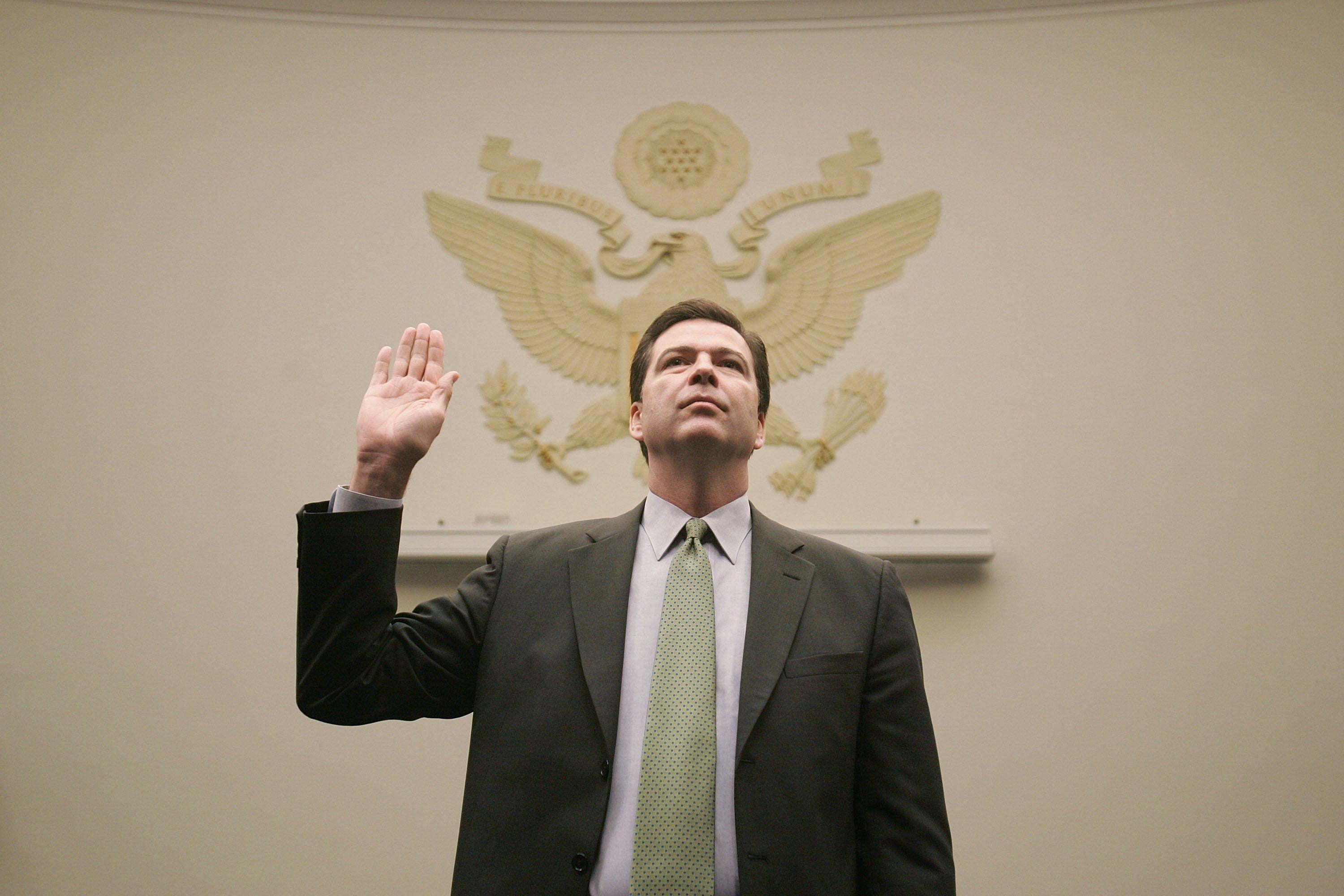Crime is Slate’s crime blog. Like us on Facebook, and follow us on Twitter @slatecrime.
On Tuesday the Senate Judiciary Committee will hold confirmation hearings for James Comey, the attorney who has been nominated as director of the Federal Bureau of Investigation. The assembled senators will ask about his life history, his work history, his qualifications for the job. But here’s hoping they devote time to questioning Comey about his previous support for torture and the indefinite detention of terrorism suspects.
Comey worked in the Justice Department during the George W. Bush administration, and during his time there he was known as a moderate voice on a team that was too eager to find legal justifications for torturing prisoners and spying on American citizens. He has been described as a “civil liberties superhero” for his part in preventing Alberto Gonzales and Andrew Card from coercing a hospitalized John Ashcroft into signing papers that would reauthorize a secret domestic surveillance program. Comey is not a villain.
But as the ACLU and other groups have noted, Comey’s merits should not blind us to his failures. At the Justice Department, Comey signed off on two memos that justified waterboarding and other “enhanced interrogation techniques” as legal practices. He adamantly defended the decision to indefinitely detain without charges Jose Padilla, an American citizen accused of conspiring with al-Qaida to attack the United States. Padilla was classified as an enemy combatant, and Comey called him “a highly trained al-Qaida soldier” who had planned to destroy apartment buildings and detonate a dirty bomb on American soil. Yet when Padilla was eventually tried in a civilian court in 2007, it was for support of terrorism overseas—not the allegations that Comey had used to justify Padilla’s detention.
I don’t think any of this necessarily disqualifies Comey from leading the FBI. There are no untarnished souls in Washington. But this deserves to be addressed. Comey, if confirmed, will set operations policy for a massive federal agency. His agents will regularly be put in positions where they’ll have to decide how to extract information from suspects and handle terrorism cases. How they respond will have a lot to do with the example Comey sets. What is his stance on enhanced interrogation techniques? What’s his stance on indefinite detention? On domestic surveillance? Have his opinions changed since his days in the Bush administration? These are questions that need to be asked and answered.
